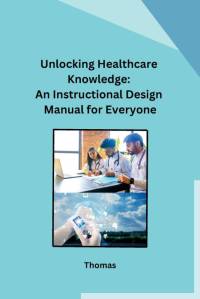Über Unlocking Healthcare Knowledge
In the ever-evolving field of healthcare, instructional design plays a crucial role in ensuring effective communication and knowledge transfer. Whether you are a healthcare professional, educator, or simply someone interested in understanding healthcare concepts, this subchapter aims to provide a comprehensive definition of healthcare instructional design and its significance.
Healthcare instructional design refers to the systematic process of creating instructional materials and experiences to facilitate learning and enhance performance within the healthcare industry. It involves the careful analysis of learners' needs, the development of instructional strategies, and the evaluation of outcomes to ensure the effectiveness of the instructional design.
Instructional design in healthcare is essential for several reasons. Firstly, it helps healthcare professionals acquire and retain knowledge, enabling them to deliver high-quality care. By employing instructional design principles, educators can create engaging and interactive learning experiences that cater to different learning styles, ensuring that healthcare professionals are equipped with the necessary knowledge and skills to handle complex medical situations.
Additionally, healthcare instructional design promotes patient safety and enhances healthcare outcomes. By designing instructional materials that focus on best practices, evidence-based medicine, and patient-centered care, healthcare professionals can improve their decision-making abilities and provide optimal care to their patients.
Moreover, healthcare instructional design supports the dissemination of healthcare knowledge to a broader audience. With advancements in technology, instructional materials can be delivered through various mediums, such as e-learning platforms, virtual reality simulations, and mobile applications, making healthcare education more accessible and convenient for learners worldwide.
Instructional design in healthcare is a multidisciplinary field that draws upon principles from education, psychology, and healthcare itself. It involves collaboration between subject matter experts, instructional designers, and technology specialists to create effective learning experiences.
Mehr anzeigen

